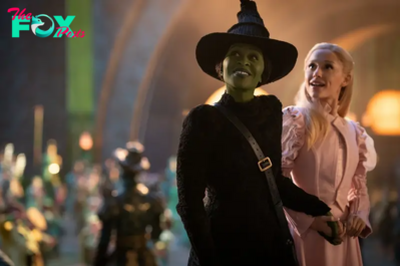Entertainment
Looking at the 10 Biggest Controversies and Scandals in Olympic History
As the Paris 2024 Olympics unfold, the world is captivated by the remarkable athleticism and the spirit of international competition. However, the Games have not always been free from controversy. Throughout its storied history, the Olympics have been marred by controversies and contentious incidents that have left an indelible mark on the event’s legacy.
From the infamous doping scandal involving Ben Johnson at the 1988 Seoul Olympics to the harrowing attack on Israeli athletes during the 1972 Munich Games, these moments of controversy have often overshadowed athletic achievements. Additionally, the judging scandal in figure skating at the 2002 Salt Lake City Olympics and the protest-filled 1980-84 Olympics stand out as notable instances of discord.
As Paris 2024 aims to celebrate unity and excellence in sport, it also serves as a poignant reminder of the complex and, at times, troubled history of the Olympic Games. In the following sections, we take a deeper look into these significant controversies, examining their impact on the athletes, the Games, and the global community. But first, let’s understand where the 2024 Olympics stand when it comes to scandals.
The biggest Olympic controversies and scandals
Paris Olympics 2024
Paris spent $1.5 billion to clean up the Seine River for the Olympics.
However, excess rain this past weekend swept millions of gallons of sewage into the river, and triathlon swim training has been canceled for the second day in a row due to E. coli levels.
What a *shit* show. pic.twitter.com/XJewu8829C
— Joe Pompliano (@JoePompliano) July 29, 2024
The Paris 2024 Olympics have not been without their share of controversies, stirring global discourse. A significant scandal involves the water quality in the Seine River, designated for swimming events. Despite a massive USD 1.5 billion cleanup effort, pollution and unsafe bacterial levels have repeatedly forced the postponement of events, raising concerns about environmental safety and preparedness.
In another high-profile incident, Team Canada found itself at the centre of a drone-spying controversy. The Canadian women’s soccer team was accused of using drones to spy on the New Zealand team during training sessions. This led to severe penalties for the Canadian coaches involved, casting a shadow over the team’s reputation.
Wtf is going on at the Olympics opening ceremony? pic.twitter.com/rWIjH8ZVwP
— Harrison Faulkner (@Harry__Faulkner) July 26, 2024
Additionally, the opening ceremony sparked outrage with a drag queen performance that many perceived as mocking Leonardo da Vinci’s portrayal of “The Last Supper.” This act drew widespread criticism for being insensitive to Christian viewers, further fuelling debates about cultural respect and the appropriateness of artistic expressions in such a globally significant event. These controversies have marred the otherwise celebratory atmosphere of the Paris 2024 Olympics.
Paris Olympics 2024 spokesperson Anne Descamps apologised “if people have taken any offence.” Speaking out about the controversy, she added, “Clearly there was never an intention to show disrespect to any religious group. On the contrary, I think that (artistic director) Thomas Jolly really tried to celebrate community tolerance,” Descamps said at a press conference. “We believe that this ambition was achieved. If people have taken any offence, we are really sorry.”
The official X account for the Olympic Games shared photos of the moment and added, “The interpretation of the Greek God Dionysus makes us aware of the absurdity of violence between human beings.”

The 2024 Paris Olympics have been overshadowed by a significant controversy in women’s boxing involving Algerian boxer Imane Khelif. Khelif, who had previously been disqualified from the world championships due to high testosterone levels, won a bout against Italian boxer Angela Carini in just 46 seconds, sparking debates about gender equity in sports.
Critics including Italian Prime Minister Giorgia Meloni and author J.K. Rowling have argued that Khelif has an unfair advantage due to having XY chromosomes, and that her participation undermines the integrity of women’s sports.
Khelif herself has not commented on the furore, but it is worth noting that she was assigned female at birth, brought up as a female, and is not transgender. Besides, she has faced defeats in past competitions, adding another layer of complexity to the discussion about her capabilities and the fairness of her participation.
On the other hand, the Algerian Olympic Committee has strongly defended Khelif, stating that the backlash is a malicious attack on her. The International Olympic Committee (IOC) has also stood by their decision to let Khelif compete, with spokesperson Mark Adams stating, “The Algerian boxer was born female, was registered female, lived her life as a female, boxed as a female, has a female passport.”
Carini has since apologised to Khelif in an interview with Italian newspaper Gazzetta dello Sport. “I’m sorry for my opponent, too. If the IOC said she can fight, I respect that decision,” she said. “Actually, I want to apologise to [Khelif] and everyone else. I was angry because my Olympics had gone up in smoke.”
Evidently, this incident highlights the ongoing challenges and complex discussions surrounding gender and competitive fairness in sports.
Hi @iocmedia @Olympics Hungarian boxer Luca Hamori posted numerous hateful messages on her Instagram about her upcoming opponent Imane Khelif.
This is contrary to the Athletes’ Declaration of rights and responsibilities for athletes within the Olympic Movement.#Olympics… pic.twitter.com/WOYSmZS4b3
— Algeria FC (@Algeria_FC) August 2, 2024
In a new twist of events, Khelif was embroiled in another significant controversy involving her Hungarian opponent, Anna Luca Hamori. Following the boxer’s knockout victory over Angela Carini, which was controversial due to accusations about Khelif’s testosterone levels, Hamori escalated tensions with a series of offensive social media posts.
The Hungarian took to Instagram to post derogatory images comparing Khelif to a devil-like figure, which many viewed as hateful and transphobic. The images and captions questioned Khelif’s gender, despite her having been cleared to compete by the relevant sporting authorities. These posts drew widespread condemnation from the sports community and the public for their offensive nature and lack of sportsmanship.
Khelif, who has faced scrutiny and criticism throughout her career, responded by focusing on her training and performance, refusing to be drawn into the negativity. The Algerian Olympic Committee defended Khelif, highlighting the need for respect and equality in sports. Despite the controversies, Imane has qualified for the semi-finals and will be competing against Thailand’s Janjaem Suwannapheng on August 7.
The 1936 Berlin Olympics

The 1936 Berlin Olympics stand as one of the most infamous examples of the Olympic Games being used for political propaganda. Adolf Hitler and the Nazi regime aimed to use the event to promote the image of a revitalised, powerful Germany and to demonstrate the supposed superiority of the Aryan race. The Games were meticulously orchestrated to display Nazi ideals, with grandiose ceremonies and rallies designed to impress the international community.
One of the most striking moments of these Olympics was the performance of African American athlete Jesse Owens. Owens won four gold medals in track and field, directly contradicting Hitler’s vision of Aryan supremacy. Despite his victories, Owens faced significant racism and discrimination both in Germany and upon his return to the United States.
The Berlin Olympics also featured groundbreaking technological advancements, including the first live television broadcasts of the Games and the introduction of the torch relay, a tradition that continues today. However, these innovations could not overshadow the darker undertones of the event.
The legacy of the 1936 Berlin Olympics is a complex one. While it showcased incredible athletic talent and introduced new traditions, it is forever tainted by its association with Nazi propaganda and the oppressive regime of Hitler. This Olympic controversy serves as a reminder of how the Games can be manipulated for political purposes, highlighting the need for vigilance to maintain the integrity of this global event.
The 1972 Munich Massacre
The 1972 Munich Olympics are tragically remembered for the Munich Massacre, one of the most harrowing incidents in Olympic history. On September 5, eight members of the Palestinian terrorist group Black September infiltrated the Olympic Village, taking 11 members of the Israeli team hostage. The terrorists demanded the release of 234 prisoners held in Israeli jails and two German-held leaders of the German Red Army Faction.
The hostage situation escalated into a 21-hour standoff, culminating in a botched rescue attempt by German authorities at a nearby airport. The tragic outcome saw all 11 Israeli hostages killed, along with five of the terrorists and a German police officer. The incident highlighted significant security flaws and raised questions about the preparedness of host nations to handle such crises.
In the aftermath, the International Olympic Committee (IOC) decided to suspend the Games for 34 hours to hold a memorial service for the victims. However, the decision to resume the Games shortly after has been widely criticised. Many felt it was an insensitive move that failed to honour the memory of the slain athletes appropriately.
The Munich Massacre brought global attention to the vulnerabilities of the Olympics to political violence and led to increased security measures in subsequent Games. It remains a stark reminder of the potential for international conflict to intersect with sporting events and the need for comprehensive security protocols to ensure the safety of all participants. It also stands as one of the darkest controversies in Olympic history.
View this post on Instagram
In a more recent turn of events, Bella Hadid has found herself at the centre of a significant controversy following her involvement in a recent Adidas campaign. The campaign, featuring the SL72 trainers, evoked the 1972 Munich Olympics. Hadid, unaware of the historical context, expressed her dismay, stating, “I am shocked, I am upset, and I am disappointed in the lack of sensitivity that went into this campaign.”
Hadid, who was born in 1996, said she had never learned about “the historical connection to the atrocious events in 1972”. She added she would “never knowingly engage with any art or work that is linked to a horrific tragedy of any kind”.
The backlash has been particularly intense from Jewish groups, given the sensitive nature of the event and Hadid’s Palestinian heritage. The criticism was swift and severe, prompting Adidas to issue an apology. On 21 July, the sneaker company publicly apologised to Hadid and others who participated in the botched campaign, saying the company “made an unintentional mistake” and expressing regret “for any negative impact”.
The controversy has sparked a broader discussion about the importance of historical awareness and sensitivity in marketing. Hadid’s involvement, though unintentional, highlights the need for thorough background checks and cultural sensitivity in brand campaigns.
The 1980 and 1984 boycotts
The Soviet Union announced, today in 1984, that it would boycott the Olympic Games that summer in Los Angeles. The Reagan Administration called the decision “a blatant political action for which there was no real justification”. https://t.co/cgsxVW4lcZ pic.twitter.com/FPmcGdrwHf
— The New York Times Archives (@NYTArchives) May 8, 2018
The Olympic Games of 1980 and 1984 were marked by significant political boycotts, deeply rooted in the Cold War tensions between the United States and the Soviet Union. These boycotts not only deprived many athletes of the chance to comPete on the world stage but also underscored the powerful iNFLuence of global Politics on Sports.
In 1980, the United States led a boycott of the Moscow Olympics in response to the Soviet invasion of Afghanistan in 1979. President Jimmy Carter urged other nations to join the boycott as a protest against Soviet aggression. As a result, over 60 countries, including Canada, West Germany, and Japan, did not participate in the Moscow Games. This boycott led to a significantly diminished level of competition and marked a poignant moment of division in Olympic history.
In retaliation, the Soviet Union and its allies, including East Germany, Cuba, and Poland, boycotted the 1984 Los Angeles Olympics. This counter-boycott was a direct response to the American-led boycott of 1980 and was framed as a security concern by the Soviet Union, although the true motive was clearly political. Despite the absence of these major competitors, the 1984 Olympics went ahead and were financially successful, thanks in part to significant corporate sponsorship.
These boycotts left a lasting impact on the Olympic movement. They also led to discussions about the need for the event to remain politically neutral.
Ben Johnson’s doping scandal in 1988
The 1988 Seoul Olympics were forever marked by the dramatic downfall of Canadian sprinter Ben Johnson, who was at the centre of one of the most infamous doping scandals in Olympic history. Johnson won the gold medal in the men’s 100 metres, setting a new world record of 9.79 seconds. His victory was celebrated globally, and he was hailed as the fastest man alive. However, just three days later, Johnson’s triumph turned to disgrace when he tested positive for the anabolic steroid stanozolol.
The revelation sent shockwaves through the sporting world, as Johnson was stripped of his gold medal and world record, which were then awarded to American runner-up Carl Lewis. The scandal exposed the rampant use of performance-enhancing drugs (PEDs) among elite athletes and underscored the need for more rigorous anti-doping measures.
Johnson’s fall from grace was particularly significant because it highlighted the extent of doping in athletics and prompted a major overhaul of drug testing protocols by the IOC. The scandal led to the establishment of the World Anti-Doping Agency (WADA) in 1999, which has since been instrumental in the fight against doping in sports.
The Tonya Harding and Nancy Kerrigan saga
The dramatic and sensational saga involving American figure skaters Tonya Harding and Nancy Kerrigan is one of the most bizarre Olympic controversies. The story unfolded in the lead-up to the 1994 Winter Olympics in Lillehammer, Norway, and captivated the world with its mix of ambition, rivalry, and criminal activity.
On January 6, 1994, Nancy Kerrigan was attacked after a practice session at the US Figure Skating Championships in Detroit. A man struck her on the knee with a police baton, intending to injure her so severely that she would be unable to compete. The attack left Kerrigan with a bruised knee but not a broken one, and she managed to recover in time to compete in the Olympics.
The investigation into the attack quickly led to Jeff Gillooly, Tonya Harding’s ex-husband, and Shawn Eckardt, her bodyguard. It was revealed that they had orchestrated the attack in an attempt to eliminate Kerrigan from competition, thereby boosting Harding’s chances. Harding herself was implicated in the aftermath, accused of conspiring to hinder the investigation.
Despite the scandal, both skaters competed in Lillehammer, where Kerrigan won the silver medal, while Harding placed eighth. The incident brought unprecedented media attention and scrutiny to the sport of figure skating and led to Harding being banned for life from the US Figure Skating Association. The Harding-Kerrigan scandal remains a stark example of the lengths to which some will go in the pursuit of Olympic glory and the intense rivalries that can exist in competitive sports. The controversy was captured in the 2017 Margot Robbie starrer, I, Tonya.
The Salt Lake City bribery scandal
The 2002 Winter Olympics in Salt Lake City were marred by a major bribery scandal that shook the foundations of the IOC and exposed the deep-seated corruption within the bidding process. In 1998, just four years before the Games were to take place, it was revealed that members of the Salt Lake Organizing Committee (SLOC) had engaged in unethical practices to secure the bid.
An investigation uncovered that SLOC officials had offered substantial gifts, financial incentives, scholarships, and even healthcare services to IOC members and their families in exchange for their votes. These revelations led to a global outcry and a major scandal within the Olympic community.
The fallout from the Scandal was significant. Several IOC members resigned or were expelled, and the IOC introduced sweeping reforms to restore credibility to the bidding process. These reforms included stricter rules for candidate cities, greater transparency, and the establishment of the IOC Ethics Commission to oversee the integrity of future bids.
The Russian doping scandal
The Russian doping scandal, which emerged in the mid-2010s, is one of the most extensive and damaging in Olympic history. The scandal broke when Grigory Rodchenkov, the former head of Russia’s national anti-doping laboratory, revealed the existence of a state-sponsored doping programme designed to enhance the performance of Russian athletes. This programme was notably employed during the 2014 Winter Olympics in Sochi, Russia.
Rodchenkov detailed how Russian officials had systematically covered up positive drug tests and replaced tainted urine samples with clean ones through a sophisticated scheme involving Secret Service agents. The revelations were supported by an investigation led by the World Anti-Doping Agency (WADA), which confirmed widespread and institutionalised doping practices.
As a result, the IOC took unprecedented action, banning Russia from competing under its national flag in the 2018 Winter Olympics in Pyeongchang and the 2020 Summer Olympics in Tokyo. Russian athletes who could prove they were clean were allowed to compete as “Olympic Athletes from Russia” under the Olympic flag, but the impact of the scandal was profound and far-reaching.
The Russian doping scandal not only tarnished the reputation of Russian sports but also raised serious questions about the integrity of international competitions. The scandal prompted a global conversation about the need for more rigorous anti-doping measures and greater transparency in sports governance. The IOC and WADA have since intensified their efforts to combat doping, implementing stricter testing protocols and sanctioning mechanisms.
The 1996 Atlanta bombing
The 1996 Atlanta Olympics were intended to celebrate the centenary of the modern Olympic Games, but they were overshadowed by a tragic and shocking terrorist attack. On July 27, a pipe bomb exploded at Centennial Olympic Park, a public gathering area designed to be the focal point of the Games. The explosion killed two people and injured over 100 others.
The bombing was carried out by domestic terrorist Eric Robert Rudolph, who later admitted to the crime. The initial investigation, however, mistakenly focused on Richard Jewell, a security guard who discovered the bomb and helped evacuate the area. Jewell was publicly vilified before being cleared of any wrongdoing, an error that highlighted serious flaws in the investigative process.
The attack cast a pall over the Games, leading to heightened security measures and an atmosphere of fear and uncertainty. Despite this, the Olympic events continued, with organisers and athletes determined not to let the tragedy overshadow the spirit of the Games.
The gymnastics judging scandal in 2004

The 2004 Athens Olympics were marred by a significant controversy in the gymnastics competition, which exposed flaws in the judging system and sparked widespread criticism. The incident involved South Korean gymnast Yang Tae-young, who was initially awarded the bronze medal in the men’s all-around event. However, it was later discovered that a scoring error had unfairly cost him the gold medal.
The judges had failed to credit Yang with the correct start value for one of his routines, which effectively deprived him of the additional points needed to secure first place. The gold medal was awarded to American gymnast Paul Hamm, who became the first American male to win the all-around gold. When the error was revealed, the South Korean delegation filed a protest, but the International Gymnastics Federation (FIG) declined to change the final standings, citing rules that prohibited altering results after the competition concluded.
The controversy sparked a heated debate over the fairness and transparency of the judging system in gymnastics. It also led to calls for reforms to prevent similar errors in the future. The incident tarnished what should have been a celebrated achievement and underscored the critical importance of accurate and fair judging in competitive sports.
In response to the outcry, the FIG introduced several changes to improve the scoring system and increase transparency. Despite these efforts, the 2004 gymnastics judging scandal remains a reminder of the potential for human error and bias in sports officiating.
(Main Image: Vincent Amalvy/ AFP Files/ AFP; Featured Image: Eileen Langsley/Getty Images)
-

 Entertainment4h ago
Entertainment4h agoThe Monkey Is the Secret Hero of Gladiator II
-

 Entertainment4h ago
Entertainment4h agoHow Wicked Connects to The Wizard of Oz
-

 Entertainment6h ago
Entertainment6h agoWhere Is Yellowstone’s Kelly Reilly From? Fans Shocked When She Reveals Real Accent
-

 Entertainment6h ago
Entertainment6h agoWhy Is the ‘Wicked’ Movie Split in 2 Parts? Director Jon M. Chu Explains Reasoning
-

 Entertainment10h ago
Entertainment10h agoAll About That Major Surprise Cameo in the Wicked Movie
-

 Entertainment10h ago
Entertainment10h agoEverything to Know About the Grimmerie Spellbook in Wicked
-

 Entertainment11h ago
Entertainment11h agoNew Paltz Holiday Celebration Returns with a Carnival and Parade
-

 Entertainment11h ago
Entertainment11h agoIs Ariana Grande Quitting Pop Music? Inside Her Singing Plans After Starring in ‘Wicked’























